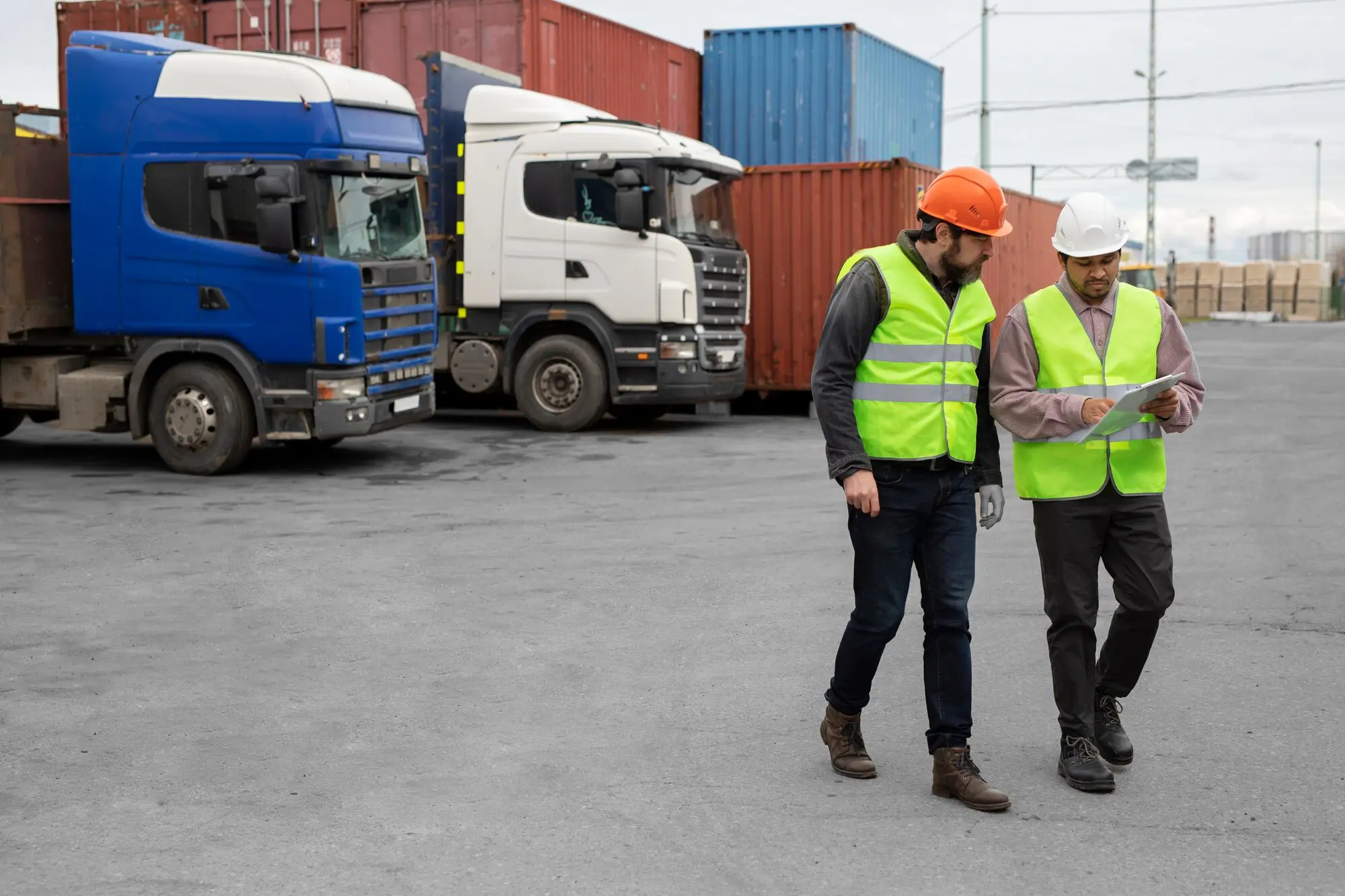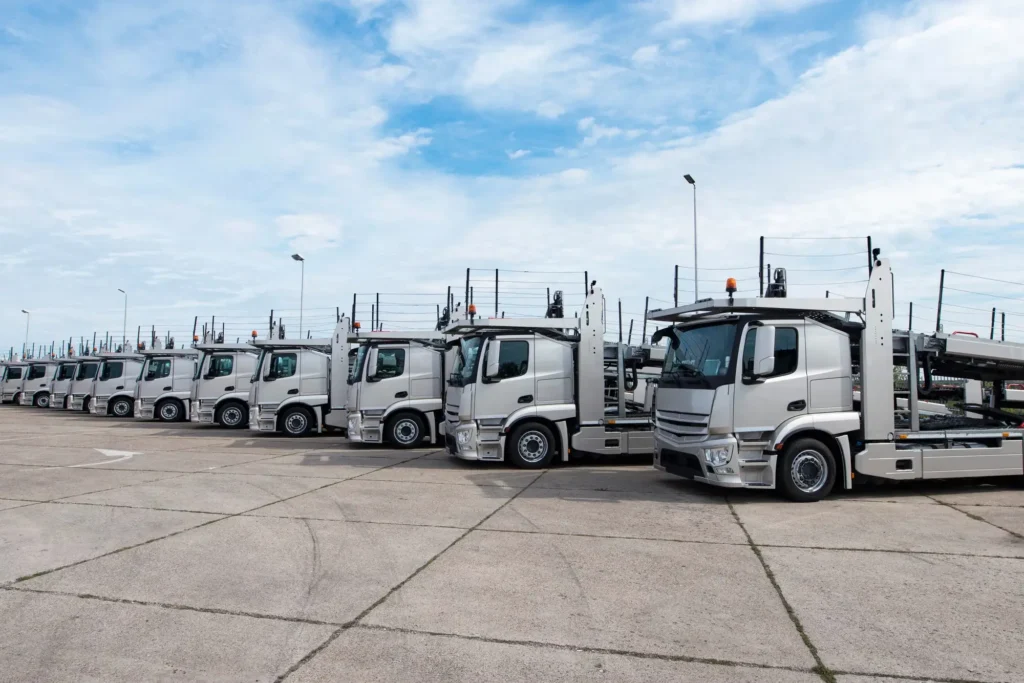Table of Contents
Key Takeaway
✔ LTL shipping lets businesses share truck space for smaller, cost-effective shipments.
✔ LTL carriers collect, consolidate, and deliver freight efficiently through regional networks.
✔ LTL offers savings, flexibility, and eco benefits but may take longer to deliver.
✔ Shipping costs depend on terms, paid by the shipper, receiver, or 3PL provider.
✔ The best carrier offers strong coverage, reliability, and tech-driven tracking.
✔ LTL fits smaller loads; full truckload suits larger, urgent shipments.
LTL trucking companies specialize in transporting smaller shipments that don’t require a full truckload, allowing multiple businesses to share space on one trailer. This approach helps reduce shipping costs, improve efficiency, and make nationwide freight movement accessible to companies of all sizes. These carriers play a vital role in keeping goods moving smoothly across regional and national networks.
Here are the key details on what LTL trucking companies are and how they work.

What Is LTL (Less-Than-Truckload) Shipping?
LTL shipping costs vary by shipment size, distance, freight class, and extra services like liftgate or residential delivery. Since every load is different, there’s no fixed rate for LTL in trucking.
Pricing is based on trailer space used—more efficient use means lower costs. With the global less than truckload (LTL) market valued at USD 216.68 billion in 2023 and projected to hit USD 342.09 billion by 2030 (a 6.9% CAGR), demand keeps growing.
For accurate pricing, businesses should consult 3PL or 3rd party logistics experts like 3PL Logistics By Best to find dependable less than truckload carriers and secure competitive rates.
How Do LTL Trucking Companies Work?
The best LTL carriers operate through a structured system that makes the process seamless from pickup to delivery. Here’s how it typically works:
Step 1 — Pickup
A local driver collects small shipments from several customers. These shipments are loaded onto smaller trucks and taken to a nearby terminal. Each piece of freight is carefully labeled, tracked, and logged to ensure accuracy during the next stages.
Step 2 — Consolidation
At the local terminal, freight is sorted based on destination. Using a “hub-and-spoke” model, shipments headed in the same direction are grouped together. This process allows LTL companies to maximize truck space and reduce costs for all customers.
Step 3 — Transfer and Long-Haul Transportation
The consolidated shipments are loaded onto larger trucks for long-distance travel between regional hubs. These main routes, or linehauls, are the backbone of LTL in trucking, allowing less than truckload carriers to move freight efficiently across the country.
Step 4 — Final Delivery
Once the shipments reach their destination terminal, they’re unloaded and sorted again. Smaller local trucks handle the final leg, delivering each shipment directly to the customer. This final step completes the streamlined process that makes LTL freight companies so efficient and practical.

Key Features and Benefits of LTL Freight Companies
Cost-Effective Shipping
One of the biggest advantages of working with LTL trucking companies is shared cost. Businesses split the expense of a full truckload, paying only for the space used. This makes shipping affordable without sacrificing reliability.
Flexibility and Scalability
Using the best LTL carriers gives companies the freedom to ship smaller loads as needed. This flexibility helps with inventory management, prevents warehouse overcrowding, and supports more frequent deliveries.
Sustainability Advantage
Fewer trucks on the road mean lower fuel consumption and reduced emissions. For companies looking to make their operations greener, partnering with LTL freight companies is an easy step toward sustainability.
Trade-Off: Longer Transit Times
Since shipments are combined and move through several terminals, deliveries can take a bit longer than dedicated truckloads. Still, most LTL companies use advanced tracking systems to give customers real-time updates, minimizing uncertainty.
Who Is Responsible for Covering LTL Shipping Costs?
Payment responsibility in LTL freight companies typically depends on the shipping agreement between the shipper and receiver. In many cases, the shipper pays upfront, but sometimes the receiver company covers the cost, depending on contract terms.
Standard arrangements like “prepaid” (shipper pays) or “collect” (receiver pays) are common in LTL in trucking. When LTL trucking companies partner with logistics providers, the 3PL often manages all billing and coordination to make the process simple and transparent for both parties.
Having clear agreements in place ensures there are no surprises about who covers the freight charges when working with LTL companies or carriers.
How to Choose the Best LTL Carrier for Your Needs
Choosing reliable LTL trucking companies is vital for cost, efficiency, and security. With cargo theft on the rise, criminals are using supply chain technology to target valuable freight. Partnering with trusted LTL freight companies that prioritize safety and tracking ensures shipments stay protected and delivered on time.
Consider Service Coverage and Network Reach
Start by checking if the carrier services the areas where your business ships most often. The best LTL carriers have dense terminal networks, reducing transit times and improving delivery reliability.
Evaluate Technology and Tracking Capabilities
Modern LTL freight companies offer digital tracking tools that give real-time visibility from pickup to delivery. This level of transparency helps businesses plan better and manage expectations with their customers.
Compare Rates, Reliability, and Claims Ratios
Not all carriers offer the same quality of service. Look at average transit times, customer reviews, and claim rates for damaged goods. Reliable less than truckload carriers balance affordability with on-time performance.
Look for 3PL (Third-Party Logistics) Support
Partnering with a 3PL or 3rd party logistics provider can simplify everything. These experts handle rate negotiations, route planning, and carrier management—connecting businesses with LTL companies that best match their shipping needs.
When to Use LTL vs. Full Truckload Shipping
Choosing between LTL and full truckload depends on shipment size and frequency. When freight doesn’t fill an entire trailer, LTL trucking companies are the smarter choice. Businesses moving large, time-sensitive loads may prefer full truckload for faster transit.
Working with 3PL or 3rd party logistics professionals helps determine which option fits best based on budget, timelines, and delivery requirements. For many growing companies, LTL in trucking provides the perfect middle ground between cost and convenience.
Frequently Asked Questions
How long does LTL shipping usually take?
Transit time for LTL shipping depends on distance, carrier routes, and how many stops a truck makes along the way. Because shipments are combined and handled at different terminals, deliveries can take slightly longer than full truckload shipping. It’s best to check directly with the carrier or logistics provider for an estimated delivery window.
What type of businesses use LTL shipping?
LTL shipping is popular with small to mid-sized businesses that ship smaller quantities frequently. Retailers, manufacturers, and distributors often use it for regular deliveries that don’t require a full truckload. It’s ideal for companies managing inventory in multiple locations.
Is LTL shipping safe for fragile items?
LTL carriers handle freight with care, but since shipments are transferred between terminals, proper packaging is essential. Businesses should use pallets, secure wrapping, and clear labeling to protect delicate goods. Working with experienced carriers helps reduce the risk of damage.
Why do LTL shipping rates change often?
LTL rates fluctuate due to fuel costs, seasonal demand, and carrier capacity. Pricing also changes when routes, freight classes, or accessorial services are updated. For consistent rates, many businesses work with LTL freight companies through long-term logistics partnerships.
What happens if my LTL shipment is delayed?
Delays can occur due to weather, routing issues, or terminal congestion. Most LTL companies provide tracking updates and estimated delivery changes when this happens. Working with reliable logistics partners helps businesses stay informed and minimize disruption.
Let 3PL Logistics by Best Manage Every Logistics Operation in New York, NY!
Businesses throughout New York, NY, depend on 3PL Logistics By Best for reliable, end-to-end logistics support. Our team delivers customized 3rd party logistics solutions that cover everything from freight brokerage and warehouse management to inventory control and distribution planning. As a trusted partner for companies of all sizes, 3PL Logistics By Best focuses on improving efficiency, cutting transportation costs, and building scalable supply chain systems that adapt to business growth. Companies in New York, NY, gain the confidence of having a logistics provider committed to keeping their operations running smoothly and effectively.
Contact 3PL Logistics By Best today to discover tailored logistics solutions in New York, NY!

